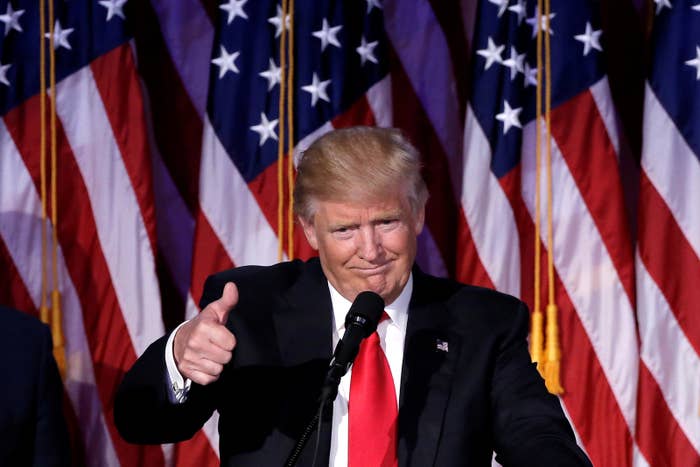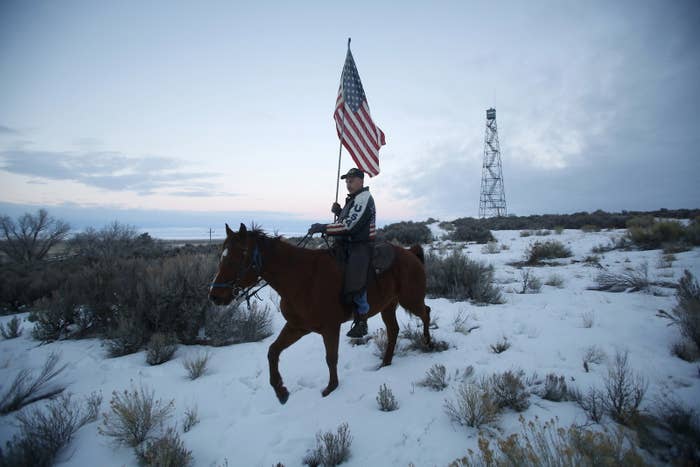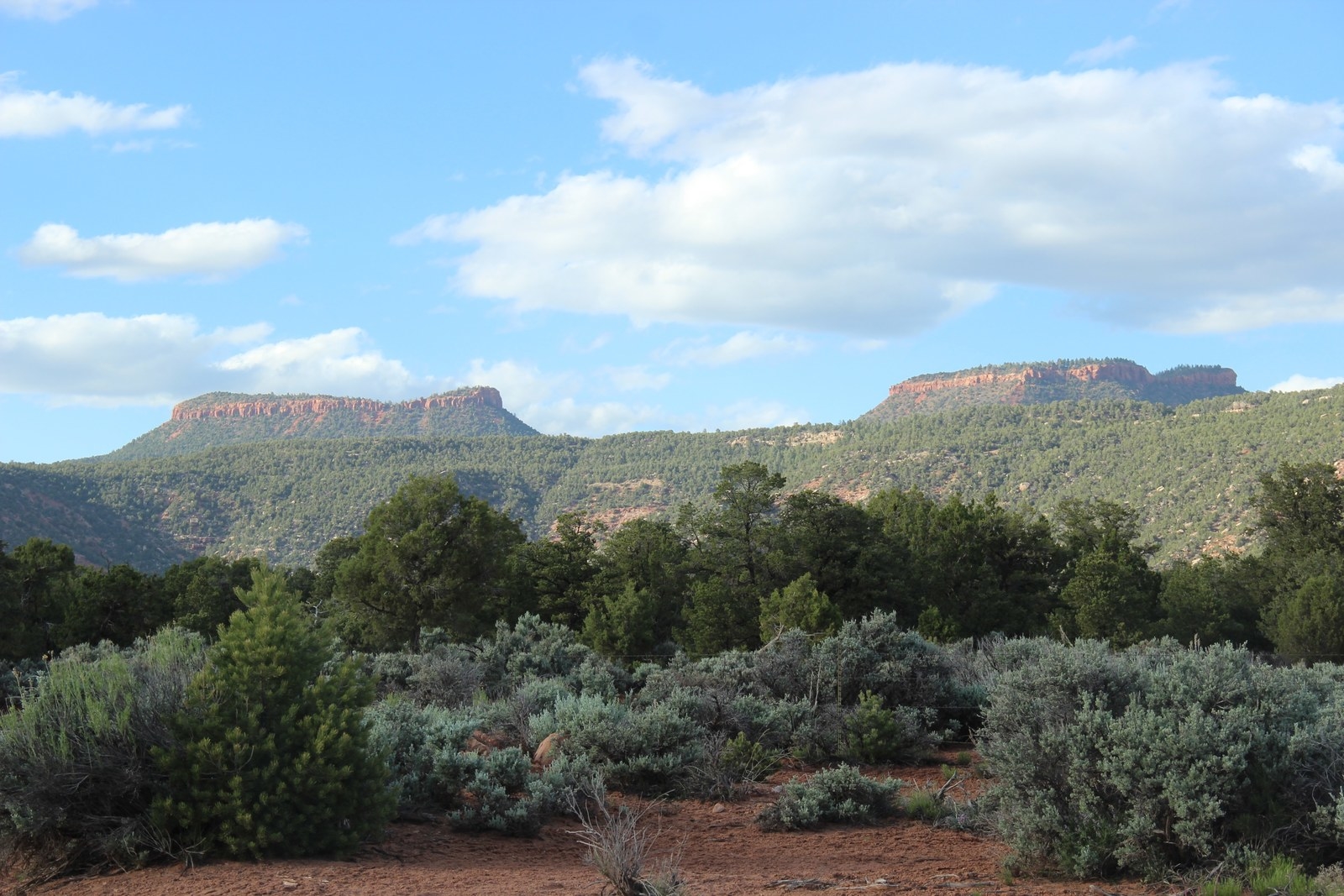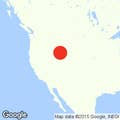
SALT LAKE CITY — Earlier this year, long-simmering tension in the rural West boiled over into an armed standoff between militia members and federal agents. Now, that still-potent tension is the problem of President-elect Donald Trump.
As president, Trump will have to figure out how to handle vast swaths of public lands in the West. Conflict over the way the federal government manages those lands prompted the Oregon standoff, which was led by members of the Nevada-based Bundy family, as well as years of smaller skirmishes and protests known collectively as the Sagebrush Rebellion. The overarching issue in the Sagebrush Rebellion is regulation, which environmentalists have generally supported, and some locals have blamed for declines in the cattle and logging industries.

A Trump spokesperson did not immediately return a request for comment on how he would manage western lands. However, many observers who spoke with BuzzFeed News Wednesday expect Trump to sweep away some regulations, as he repeatedly promised to do during his campaign.
"He has already said he wants to see the maximum amount of oil and gas on our public lands," said Sarah Krakoff, a professor at the University of Colorado Law School. "That could be one fairly swift and dramatic change."
"The administration is certainly going to be doing more leasing for fossil fuels on public lands," said Michael Blumm, a professor at Lewis and Clark Law School. "How much more they can do, I don’t know."
Among the more controversial issues facing westerners is the presidential authority granted by the Antiquities Act to set aside land as national monuments. President Obama has repeatedly used the act in the final months of his presidency, and is expected to create more national monuments before leaving office.
But Krakoff said Trump couldn't simply eliminate Obama's national monuments.
"It would take Congress to do that," she said. "The president can’t reverse proclamations on his own. But with a Republican controlled Congress it’s possible some could be reversed."
Ditto for other regulations.
"The Bush administration's efforts to role back regulations that the Clinton administration put into effect was met with mixed success at best," Blumm said, adding that Trump might experience something similar.
Whether Trump can roll back existing regulations or not, some in the rural West remain optimistic that his administration will result in more local control going forward. The day after Trump handily won rural counties across the region, Phil Lyman, a commissioner in Utah's San Juan County, told BuzzFeed News he voted for the candidate.
"I’m a Trump fan," said Lyman, who has vocally opposed a national monument in his region. "I would hope that his administration doesn’t give any undo credence to the lies that these environmental groups tell. That’s my only hope, that we’re dealing with reality and not that false reality."

In Oregon, where one monument proposal calls for 2.5 million acres to be set aside for an Owyhee Canyonlands National Monument, Jerome Rosa expressed similar optimism about a Trump presidency.
"We’re really anxious to see what the new president has to bring," Rosa, executive director of the Oregon Cattleman’s Association, told BuzzFeed News. "We have some real challenges in our industry right now. We’re really optimistic."
For his part, Trump has not said what he might do with the Antiquities Act or with Obama's national monument designations.
It's also not clear where he stands on the concept of transferring control of federal lands to states — a popular idea among some conservatives in western states. In January, Trump said he opposed land transfers. Later, he left questions about his position unanswered, and finally in October reportedly told a leader of the land transfer movement that "I'm with you."
Despite the lack of clarity, there are clues about how Trump might handle western lands. On Wednesday, BuzzFeed News reported he was considering Forrest Lucas, who founded an oil company, to serve as secretary of the Interior, which oversees several agencies that manage federal lands. Trump is also considering former Alaska Gov. Sarah Palin, who famously used the phrase "drill, baby, drill" while running for vice president.
These developments, along with Trump's frequent criticism of regulation on the campaign trail, suggest the president-elect will be friendly to rural westerners who have chafed under Obama, clashed with environmentalists, and called for more industrial use of public lands.
"I think we can expect to see proposals that would increase the amount of extractive activity greatly," Krakoff said. "I suspect there will be calls to do things like dispossess the federal government of some tracts of it federal land."
It remains to be seen how all of this will affect the numerous conflicts, some of them peaceful some of them not, that have been a part of the Sagebrush Rebellion. Ironically, however, one plausible scenario is that conflict itself will decrease.
"When we elected a president who said he was a sagebrush rebel, the rebellion subsided," Blumm said, referring to Ronald Reagan's election in 1980. "It’s possible that we’ll have a repeat of that."
Or not. Several observers who spoke with BuzzFeed News Wednesday expect Trump's victory may actually throw fuel on the fire in a region that has seen widespread tension over the way federal lands are managed.
"I think that contingent, the Bundy contingent and others who are sympathetic to them, will feel very emboldened," Krakoff said. "They won’t feel like they need to hunker down in the opposition."

